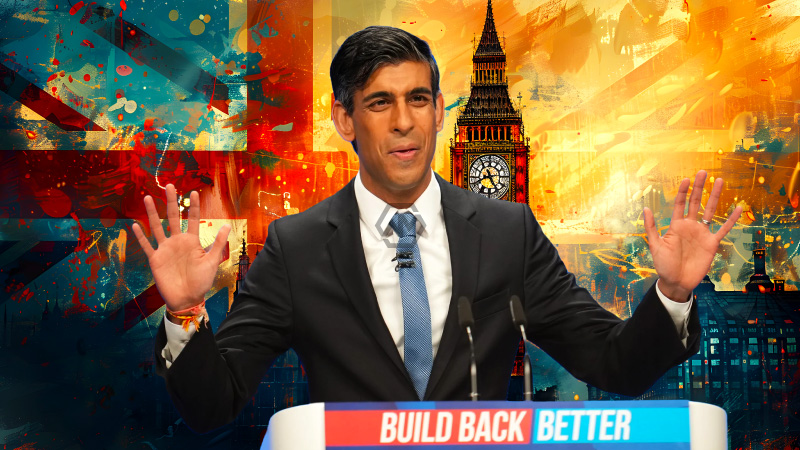- UK inflation returns to 2% target after peaking at 11.1% in 2022.
- Rishi Sunak claims economic turnaround, citing lower inflation compared to major economies.
- Political landscape shifts as Reform UK edges past Conservatives in recent poll ahead of upcoming elections.
Prime Minister Rishi Sunak heralds a milestone as UK inflation rebounds to the Bank of England’s 2% target, marking a sharp contrast from its peak of 11.1% just two years prior.
Sunak attributes this achievement to bold economic measures and steadfast policy implementation, positioning the UK favorably against Germany, France, and the US in inflation rates.
UK Inflation Hits 2% Target Amid Political Turbulence
Meanwhile, ahead of the looming elections, Nigel Farage’s Reform UK Party has surged in popularity, surpassing Sunak’s Conservatives in a recent poll. With Labour leading the race and Sunak’s tax cut pledge stirring mixed reactions, the political landscape braces for a potentially pivotal electoral showdown.
In parallel, the political landscape ahead of the upcoming elections shows Nigel Farage’s Reform UK Party gaining ground, surpassing the Conservatives in recent polling. This shift underscores growing voter sentiment and sets the stage for a competitive electoral season.
With Labour maintaining a lead in the polls and Sunak’s tax reduction proposal receiving mixed reactions, the dynamics leading up to the election on July 4th remain fluid and unpredictable. The outcome will likely hinge on how these economic achievements and political developments resonate with voters across the UK.
As the Bank of England prepares for its monetary policy announcement, expected shortly before the election, the potential for a rate cut looms large. This decision could further influence voter perceptions of economic stewardship and shape the final electoral landscape.
“Today’s achievement of reaching the 2% inflation target is a testament to our commitment to economic stability and prudent fiscal management in the face of global challenges.”
– Rishi Sunak



